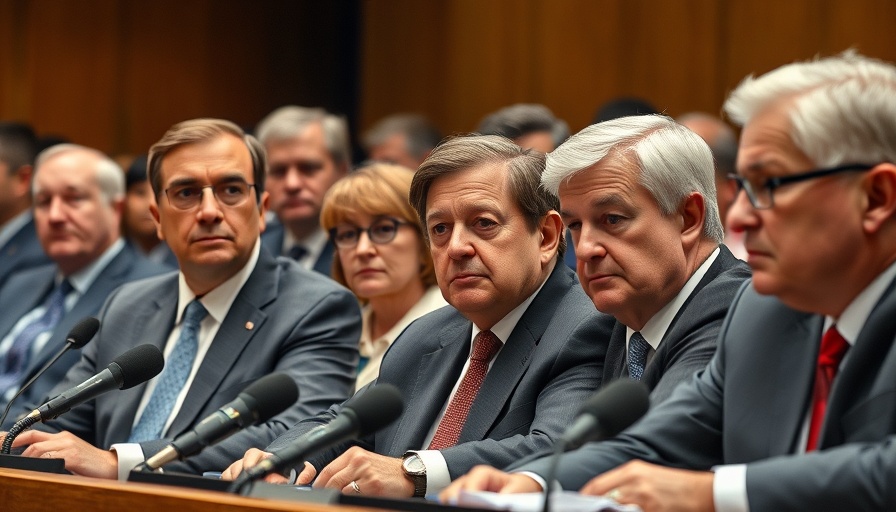
Trump Administration Challenges State Lawsuits Against Fossil Fuel Companies
In a surprising legal maneuver, the U.S. Department of Justice (DOJ) has launched lawsuits to thwart Michigan and Hawaii from holding fossil fuel companies accountable for their roles in exacerbating the climate crisis. The DOJ argues that these state-level actions undermine federal authority and conflict with President Trump's energy agenda. This unprecedented move has sparked widespread discussions and concerns about the implications for environmental justice.
What’s at Stake for States Like Michigan and Hawaii?
The lawsuits target states that have taken the initiative to challenge fossil fuel corporations over their greenhouse gas emissions. Hawaii's Governor, Josh Green, has confirmed the state's intentions to pursue legal action against several fossil fuel-affiliated companies, particularly in the wake of climate-induced disasters, such as the devastating Lahaina wildfire in 2023. Green emphasizes the need for these companies to be held accountable for the ecological damage inflicted upon the islands.
Federal Pushback: An Attempt to Protect Energy Independence?
U.S. Attorney General Pam Bondi has articulated the position of the DOJ, stating that such state lawsuits impede American energy independence and threaten national security. The administration posits that these legal challenges are ideologically motivated and could obstruct the production of reliable energy sources. Critics argue that this viewpoint overlooks the urgent need for accountability in the face of climate change and its tangible effects on state environments.
The Broader Implications for Environmental Justice
The backlash against these federal lawsuits raises critical questions about the balance of power between state and federal governments, especially when environmental issues are at stake. Attorney General Dana Nessel of Michigan has tweeted her commitment to proceeding with litigation against the fossil fuel industry, asserting that the attempt to preempt state lawsuits is unwarranted. The fallout from these actions further complicates how states can respond to environmental crises—and what it means for citizens looking to hold polluters accountable.
A Potential Ripple Effect in Other States
As these legal battles unfold, they set a significant precedent. If the DOJ succeeds in blocking state lawsuits, it may discourage other states from pursuing similar actions against corporations contributing to climate change. Alternatively, a strong state response could inspire a wave of litigation aimed at enforcing climate accountability across the nation, signaling a shift in how citizens and their governments approach environmental justice.
Public Sentiment and the Future of Climate Advocacy
Public opinion may also play a pivotal role in this ongoing situation. As awareness of climate change impacts increases, the demand for holding fossil fuel companies accountable has grown louder. Citizens across the country are increasingly advocating for transparency and action against those responsible for environmental degradation. This complex intersection of legal, political, and public opinion will undoubtedly shape the future landscape of climate advocacy.
In wrapping up, this administration’s strategy to block state lawsuits against fossil fuel companies introduces crucial debates about accountability, environmental justice, and state rights. Both state officials and concerned citizens must remain vigilant in pursuing the legal avenues available to address the climate crisis and protect their rights and environments.
 Add Row
Add Row  Add
Add 




Write A Comment